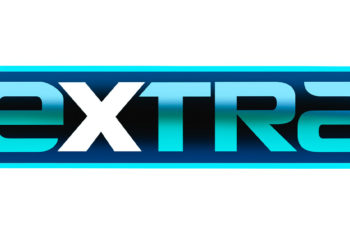President Emmanuel Macron of France, painting a somber picture of a threatening world, announced a sharp increase in military spending on Sunday in his traditional address to the armed forces on the eve of the Bastille Day national holiday.
“Our freedom has never been so threatened,” Mr. Macron said. “There are no more rules, it’s the law of the strongest that wins.” In this context, he added, “We Europeans must assure our security ourselves.”
His speech amounted to the strongest statement yet of the French view that old partnerships, particularly with President Trump’s America, have eroded; that the threat from Russia is acute; and that inhibitions over recourse to force in the world have disappeared.
“You have to be feared in this world,” Mr. Macron said. “And to be feared you have to be strong.” He added that “American disengagement” left Europe with no choice but to defend itself.
Mr. Macron announced that, given the mounting threats, military spending would accelerate to reach $74.8 billion by 2027, when Mr. Macron, who is term limited, will leave office. In all, the military budget will grow by 6.5 billion euros, or $7.6 billion, over the next two years.
Military spending stood $37.64 billion in 2017 when Mr. Macron took office, so it will in effect have doubled in a decade. But it still represents only 2 percent of total economic output today. NATO agreed last month to increase military spending by all 32 member states to 5 percent of national income by 2035.
The increase in spending, even at a time of acute budgetary crisis, reflects a forbidding assessment of current risks. The Russian threat alone was described last week by the top French general, Thierry Burkhard, as turning France into Moscow’s “main adversary in Europe.”
“Recent years have marked a return to the unthinkable,” Mr. Macron said, citing the bombardment of Iran, without mentioning Israel or the United States. He also alluded to commercial wars, nuclear threats and a proliferation of major conflicts, notably in Ukraine.
France, the only nuclear power in the European Union, has the most powerful armed forces in the 27-nation union. In Western Europe, only Britain is a nuclear power with a military of roughly equivalent strength.
The announcement comes at a difficult time for Mr. Macron. His ability to shape domestic policy is limited by a gridlocked Parliament, which could still try to block the increase of funds to the armed forces. His grand designs for international affairs have generally been frustrated, both in Ukraine, where France has become a strong supporter of President Volodymyr Zelensky, and in the Middle East.
Mr. Macron has been incensed by Mr. Trump’s erratic foreign policy, by his open contempt for French efforts to resolve the Israeli-Palestinian conflict, by personal insults and by repeated threats from the White House to raise tariffs on Europe.
This has increased his determination to chart a more independent course for France and Europe, a theme he has pursued over many years with calls for “strategic autonomy,” but has now embraced with a new urgency.
On Saturday, Mr. Macron expressed “very strong disapproval” of Mr. Trump’s threat to impose a 30 percent tariff on goods from the European Union if there is no trade agreement by Aug. 1. The threat injected a poisonous note into ongoing negotiations. The French president has not responded to Mr. Trump’s description of him last month as a publicity hound who “always gets it wrong.”
Mr. Macron was also unhappy about Mr. Trump’s efforts to undermine a United Nations conference last month that was to have been led by France and Saudi Arabia and where Mr. Macron had indicated that he would announce French recognition of a Palestinian state.
The conference was postponed as a result of Israel’s bombing of Iran, and although Mr. Macron said a new date would be found within days, this has not happened.
In an interview with a French newspaper, La Tribune Dimanche, that appeared on Sunday, Sébastien Lecornu, the French defense minister, said “nobody in France wants our country to depend on others in military terms.” Achieving that self-reliance, he said, would require “a new effort, not only budgetary, but also intellectual, moral and industrial.”
In effect, both Mr. Macron and Mr. Lecornu appeared to be announcing the end of a postwar era in which France, however reluctantly, and however bristling with Gaullist pride, knew it could always turn to the United States as a military ally and depend on it.
“Let us be faithful to the people of the Revolution who declared their grandeur and demanded the universal freedom of all peoples,” Mr. Macron said on the eve of the annual celebration of the 1789 Revolution, which stands at the core of the French self-image.
Roger Cohen is the Paris Bureau chief for The Times, covering France and beyond. He has reported on wars in Lebanon, Bosnia and Ukraine, and between Israel and Gaza, in more than four decades as a journalist. At The Times, he has been a correspondent, foreign editor and columnist.
The post Macron, Saying Freedom Has Never Been So Threatened, Boosts Military Spending appeared first on New York Times.




